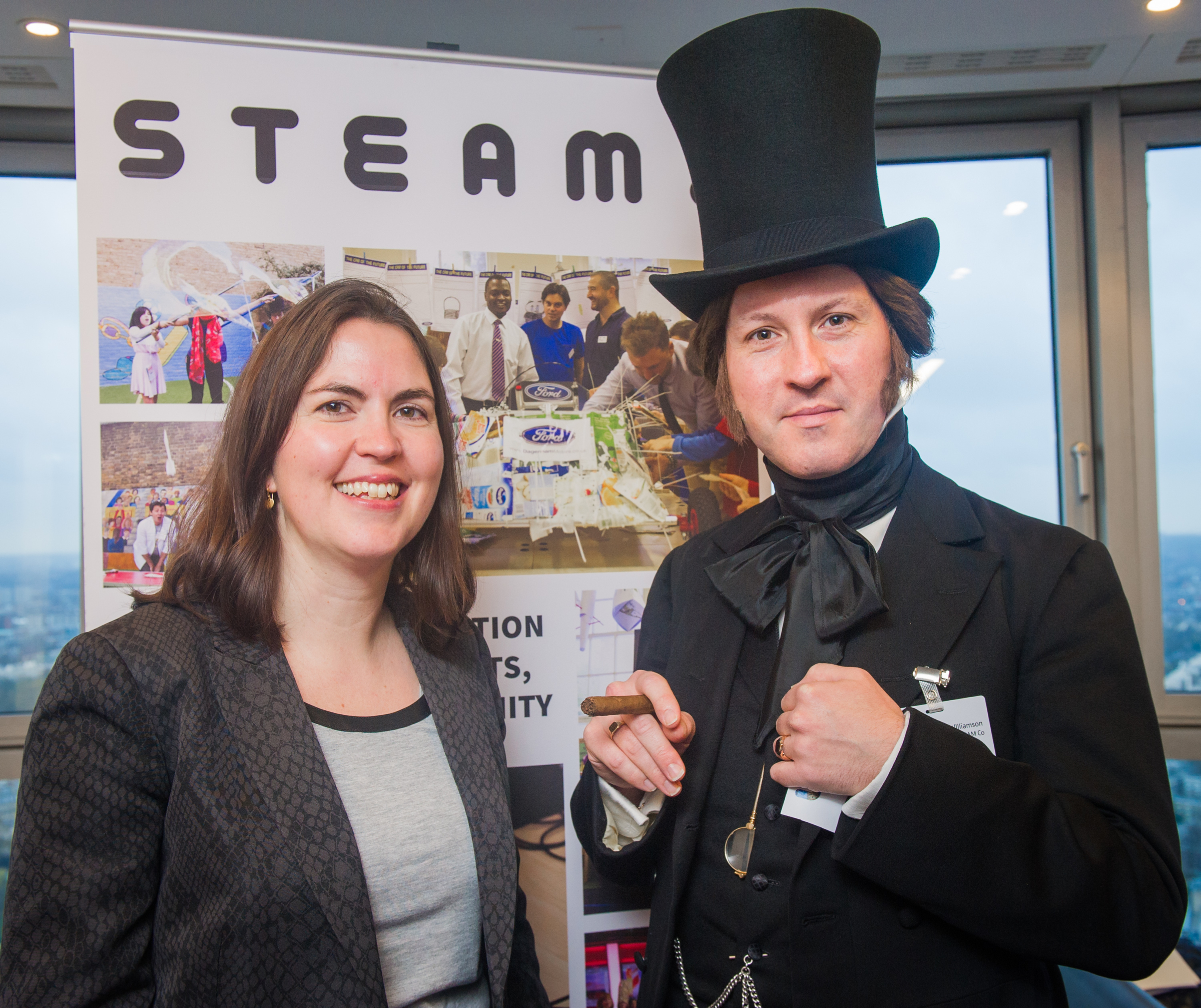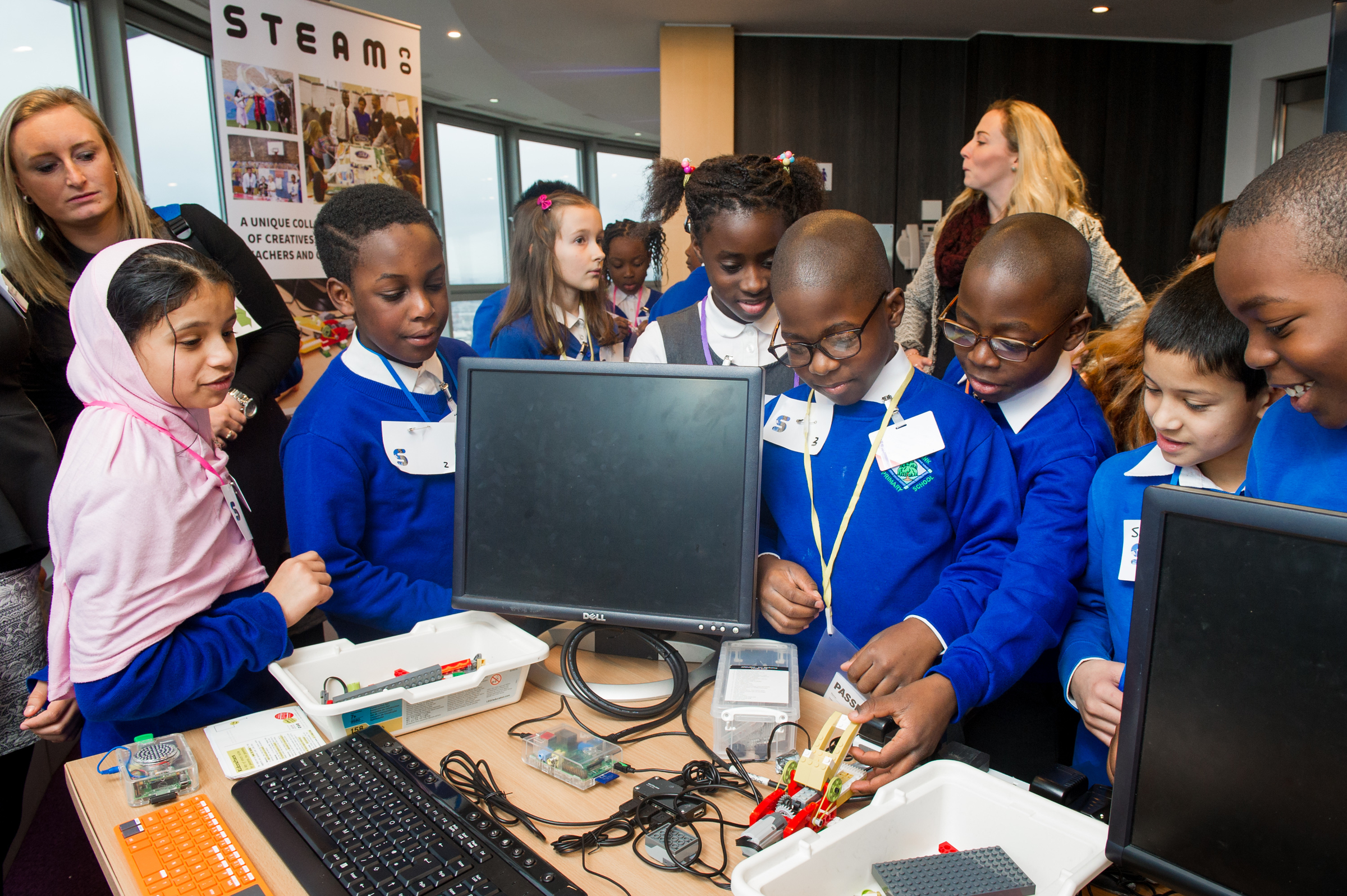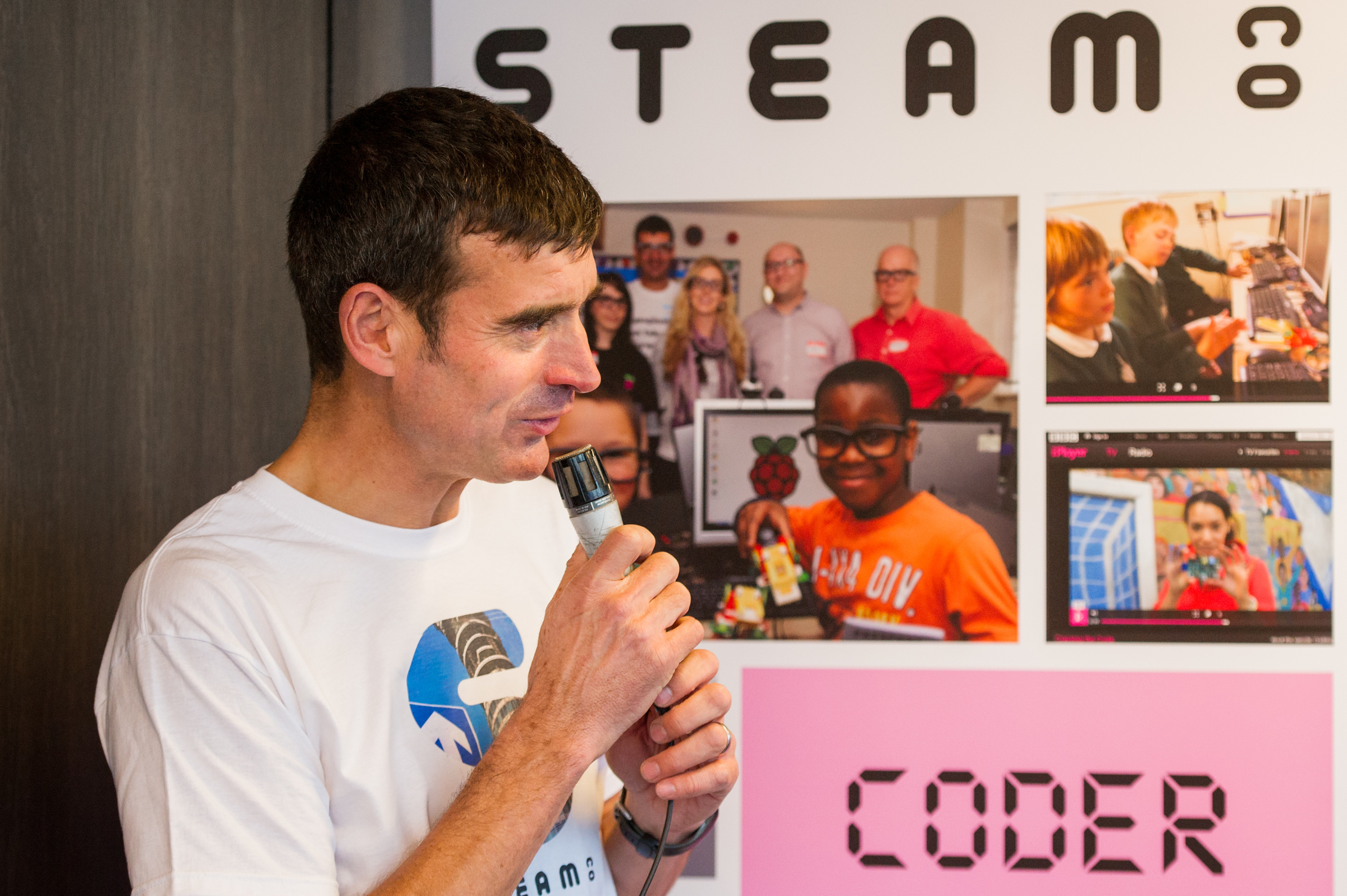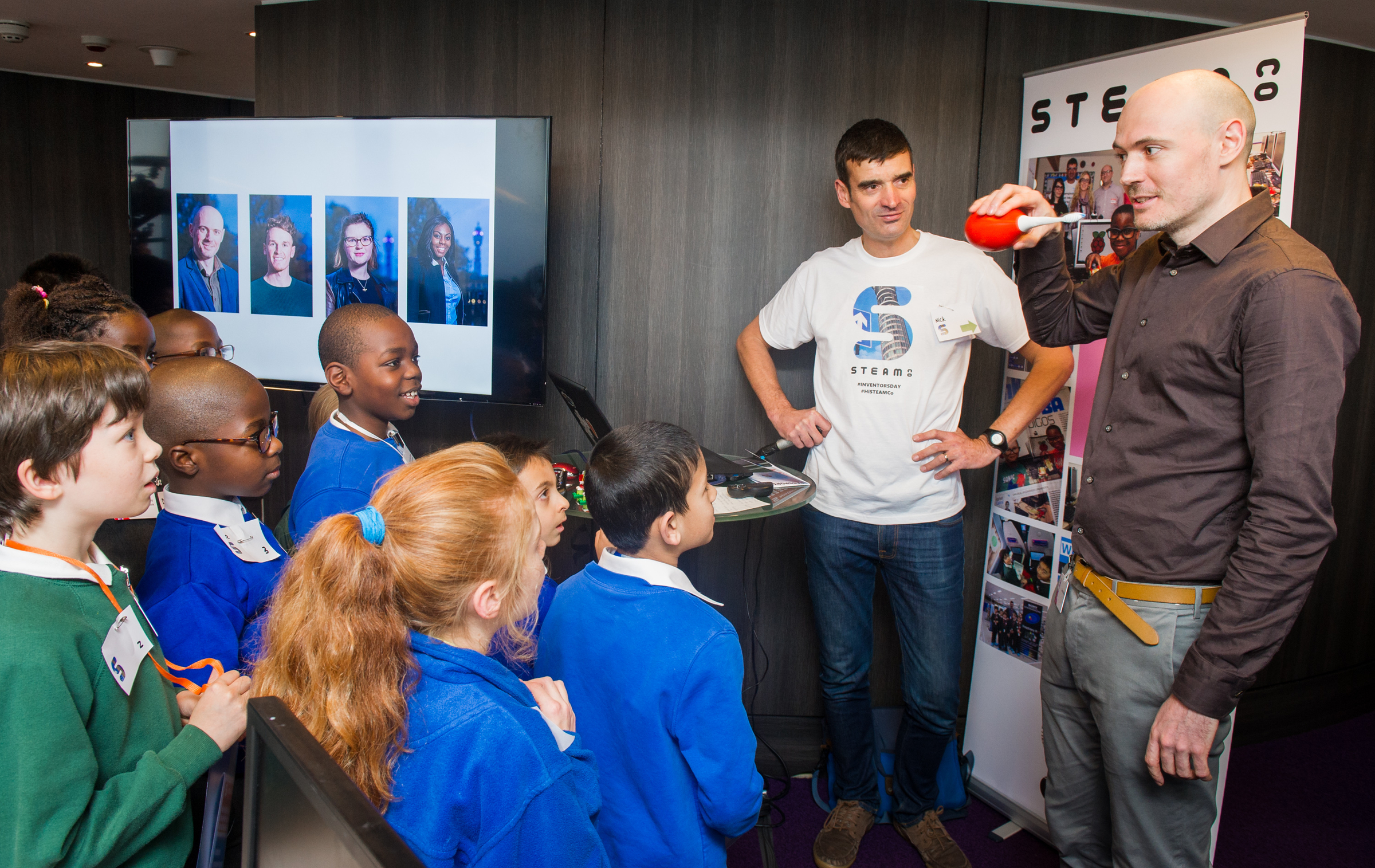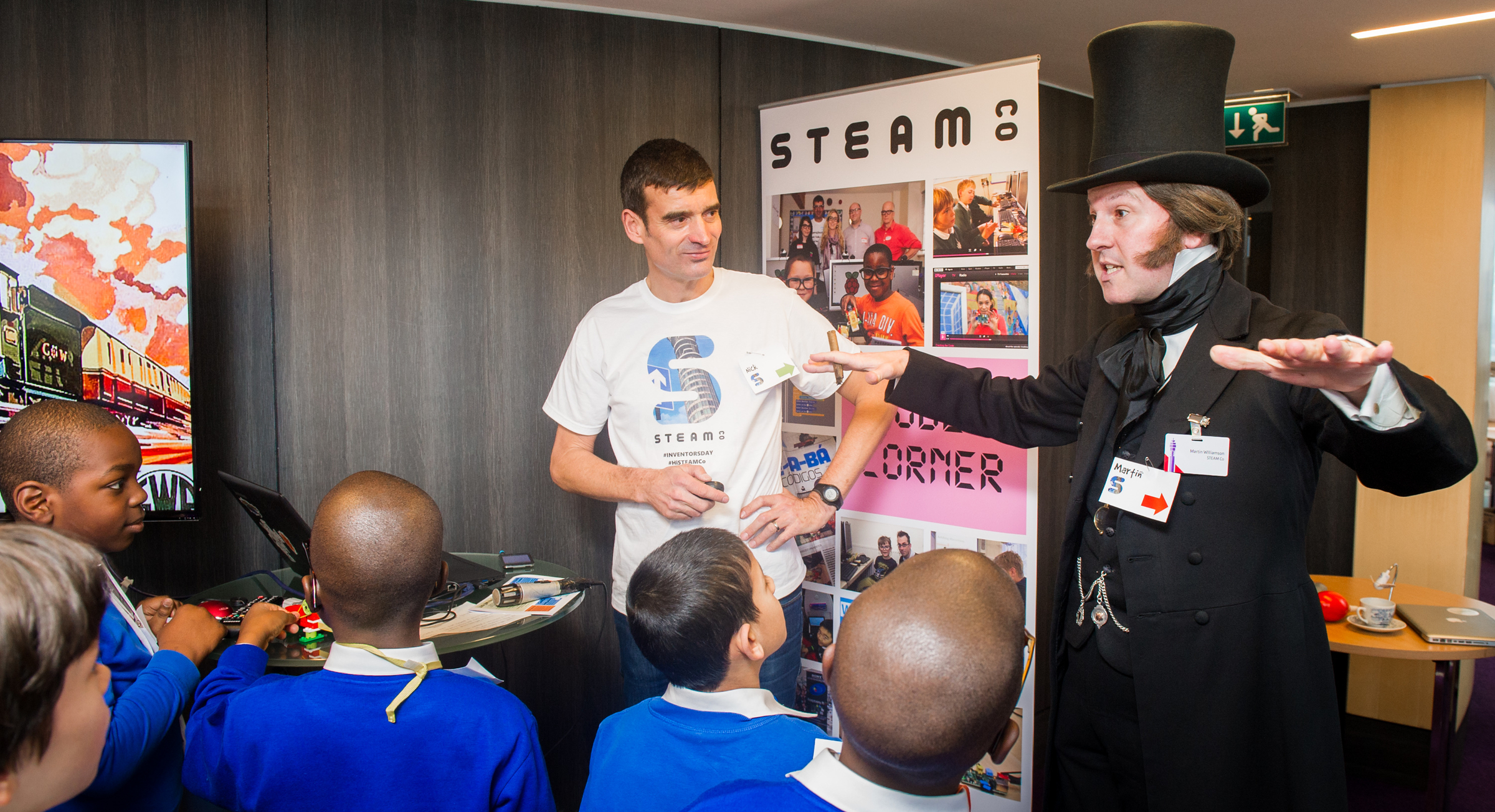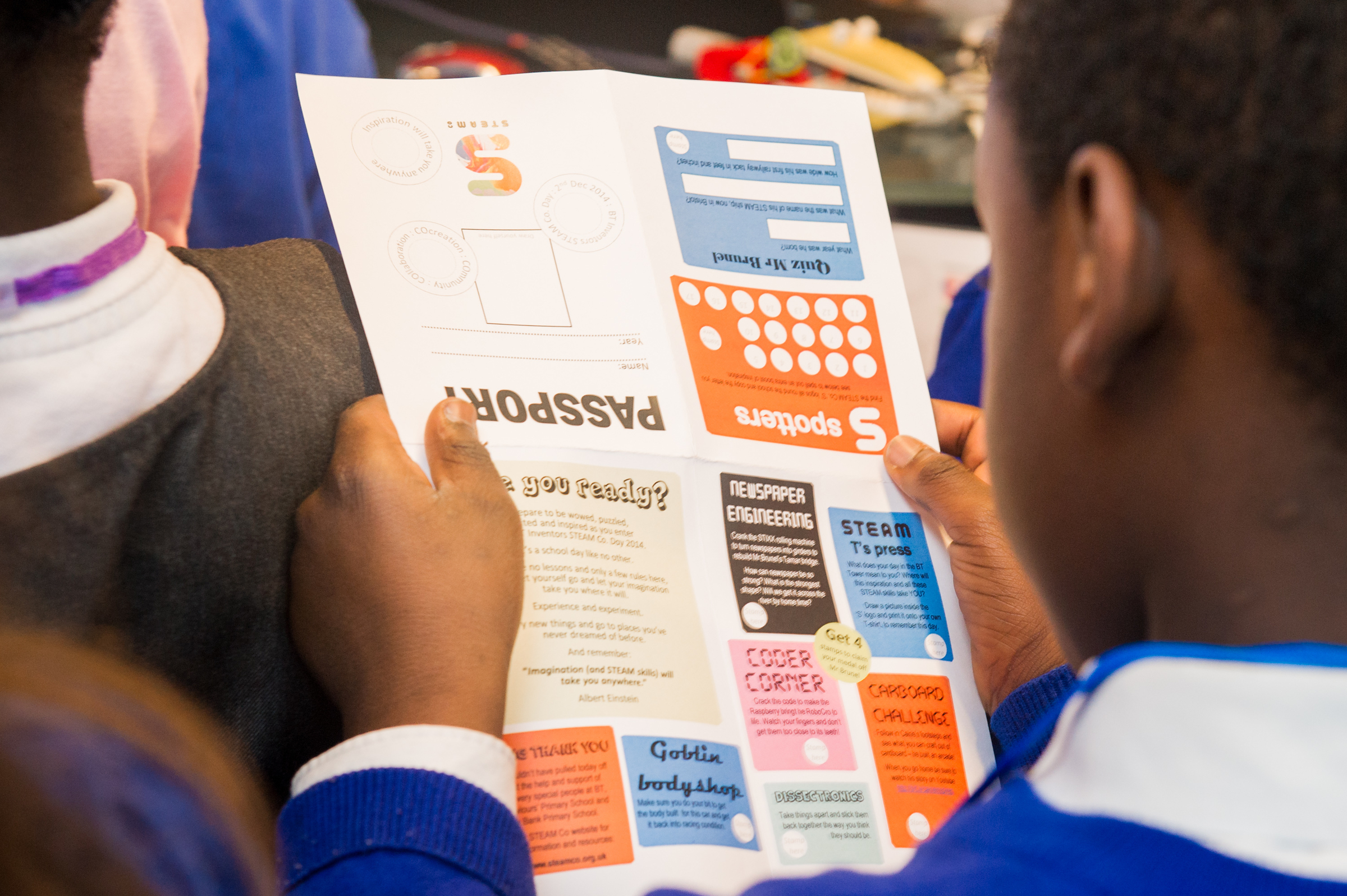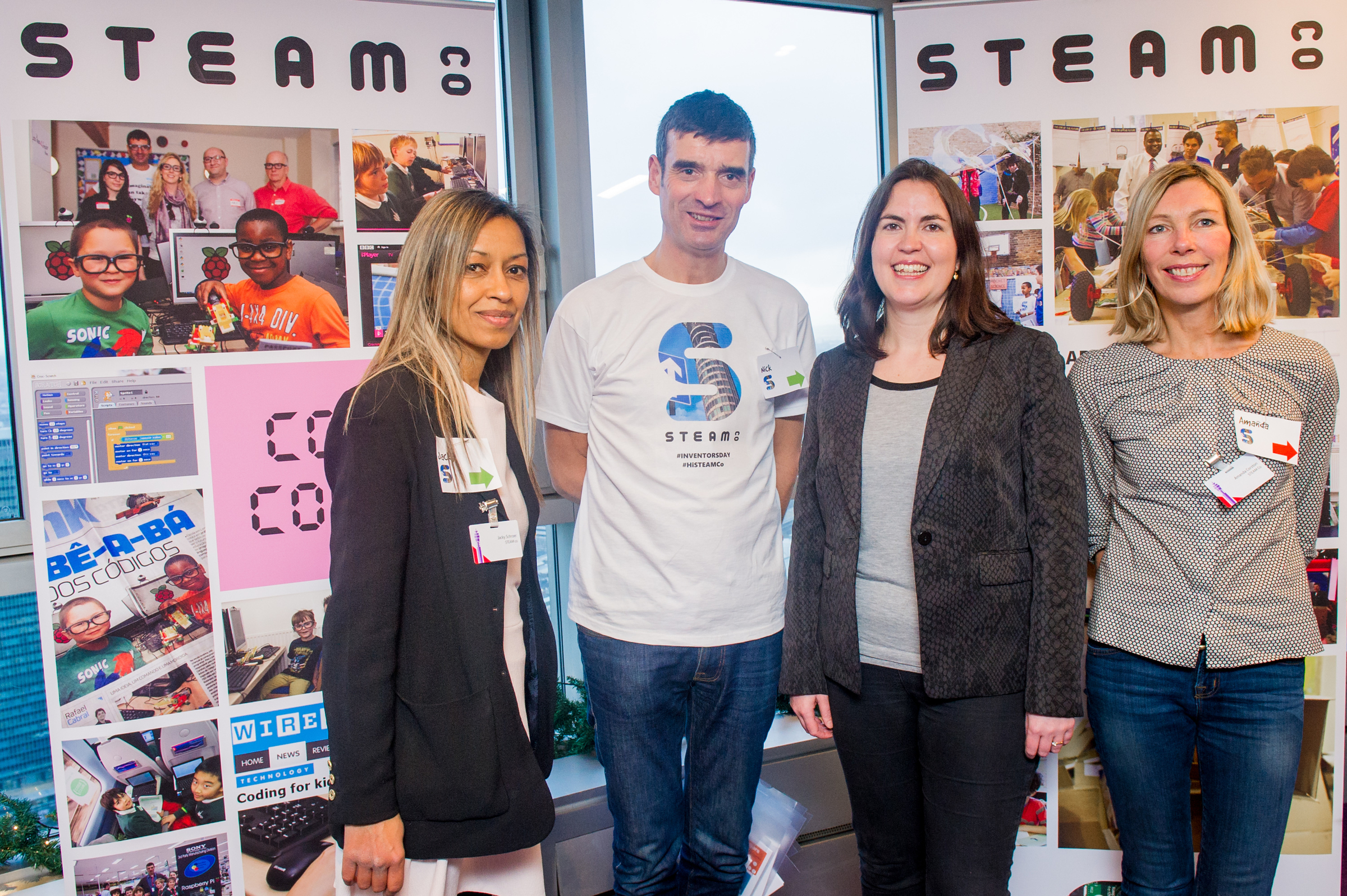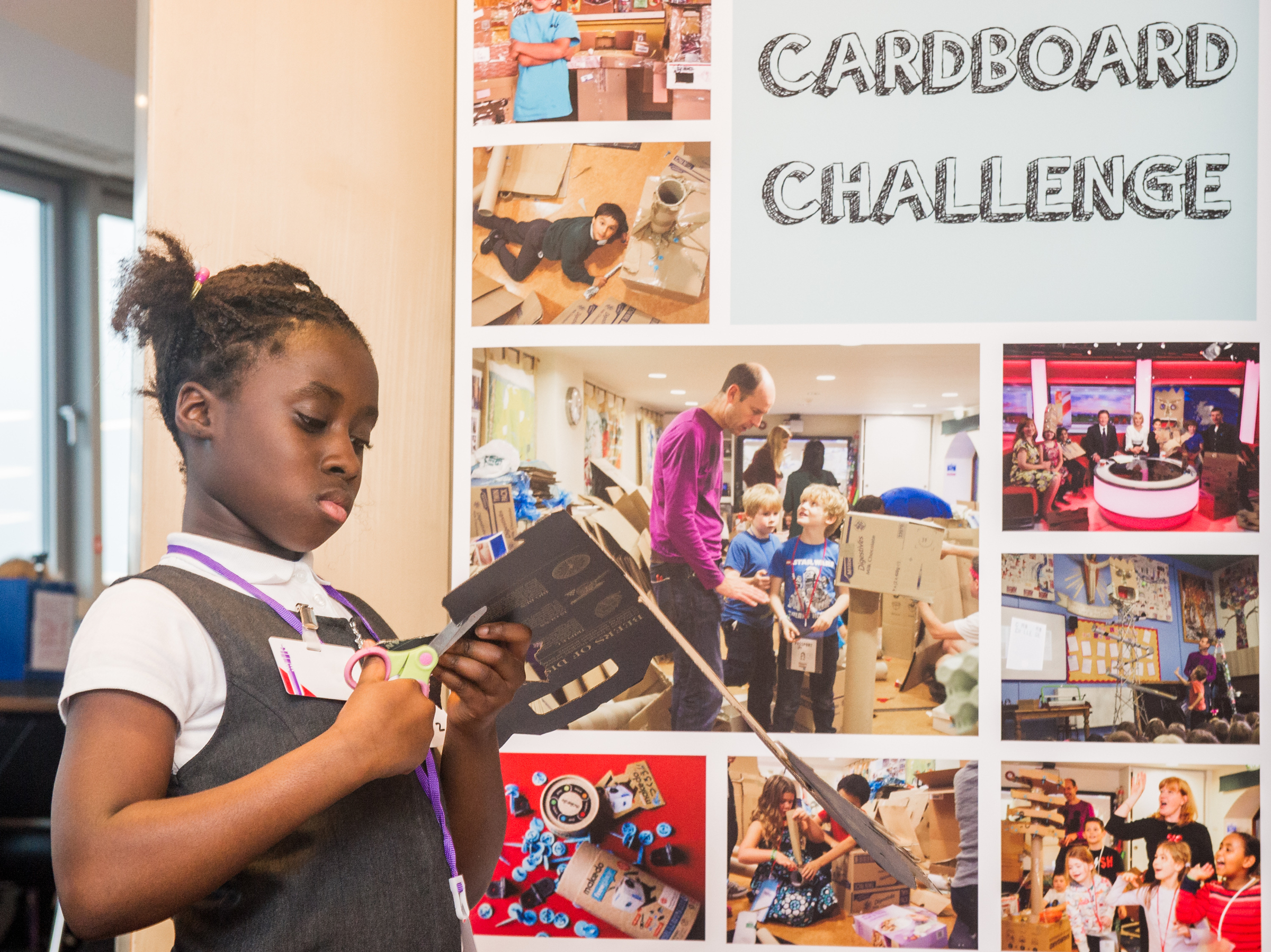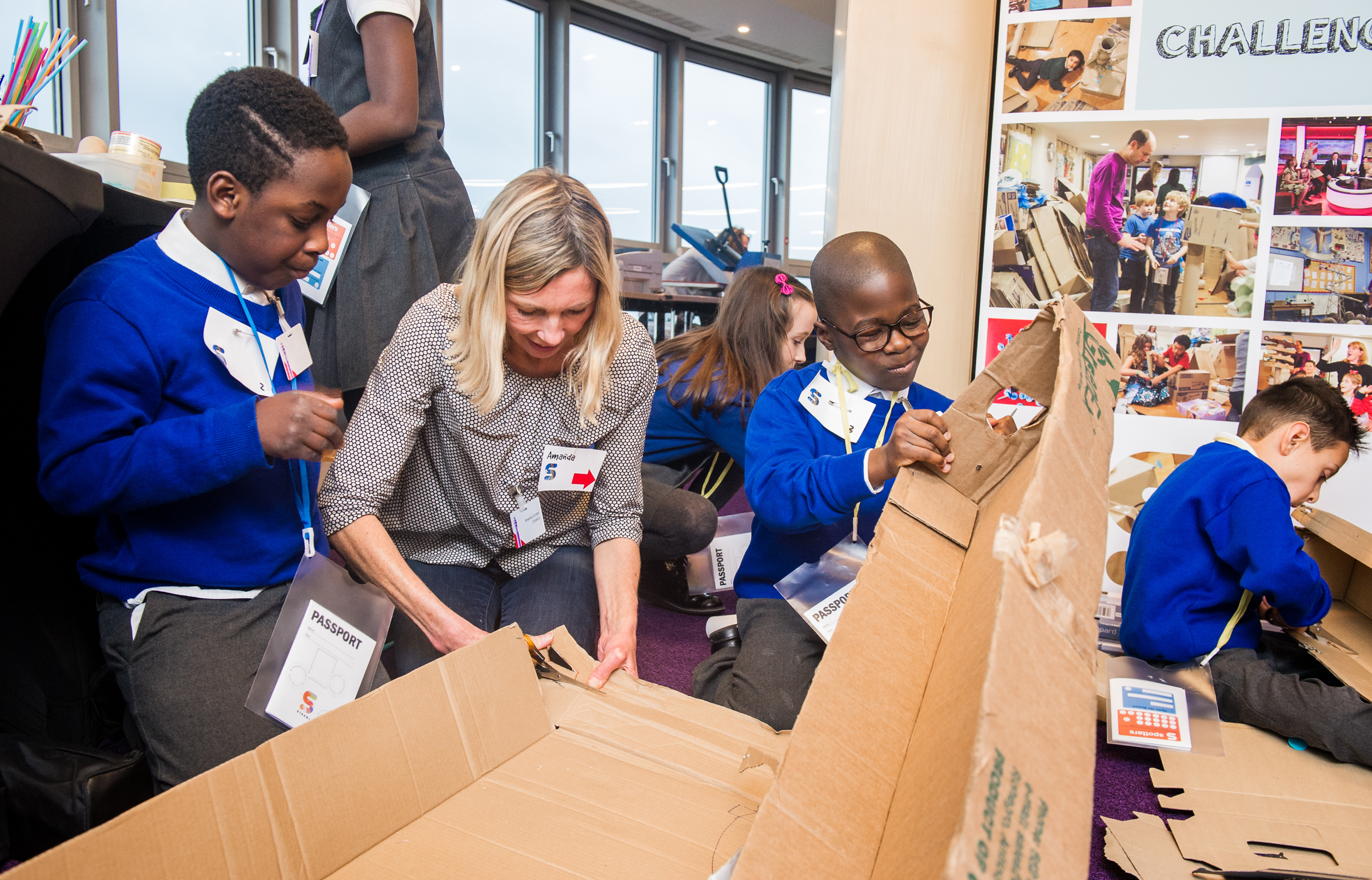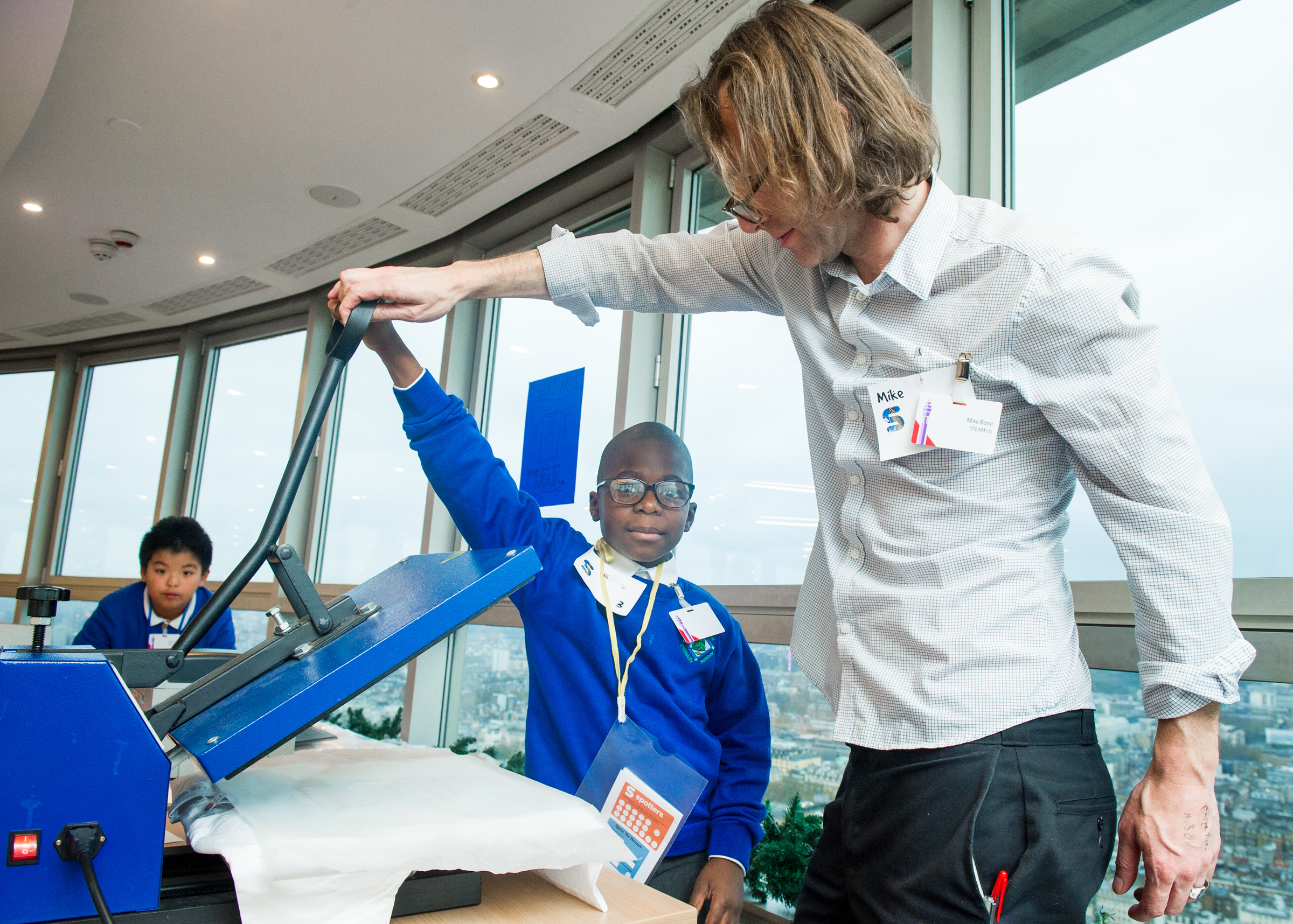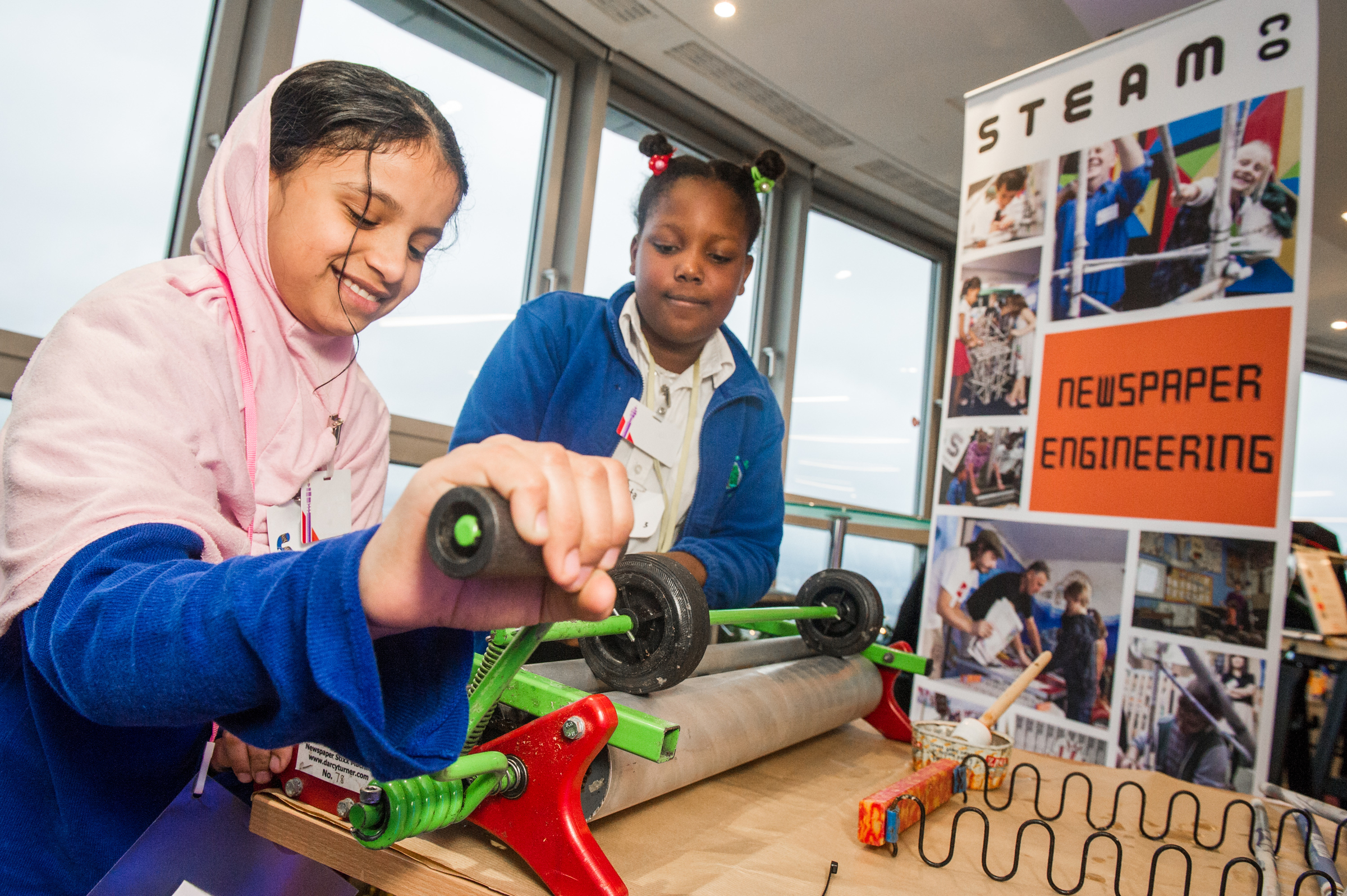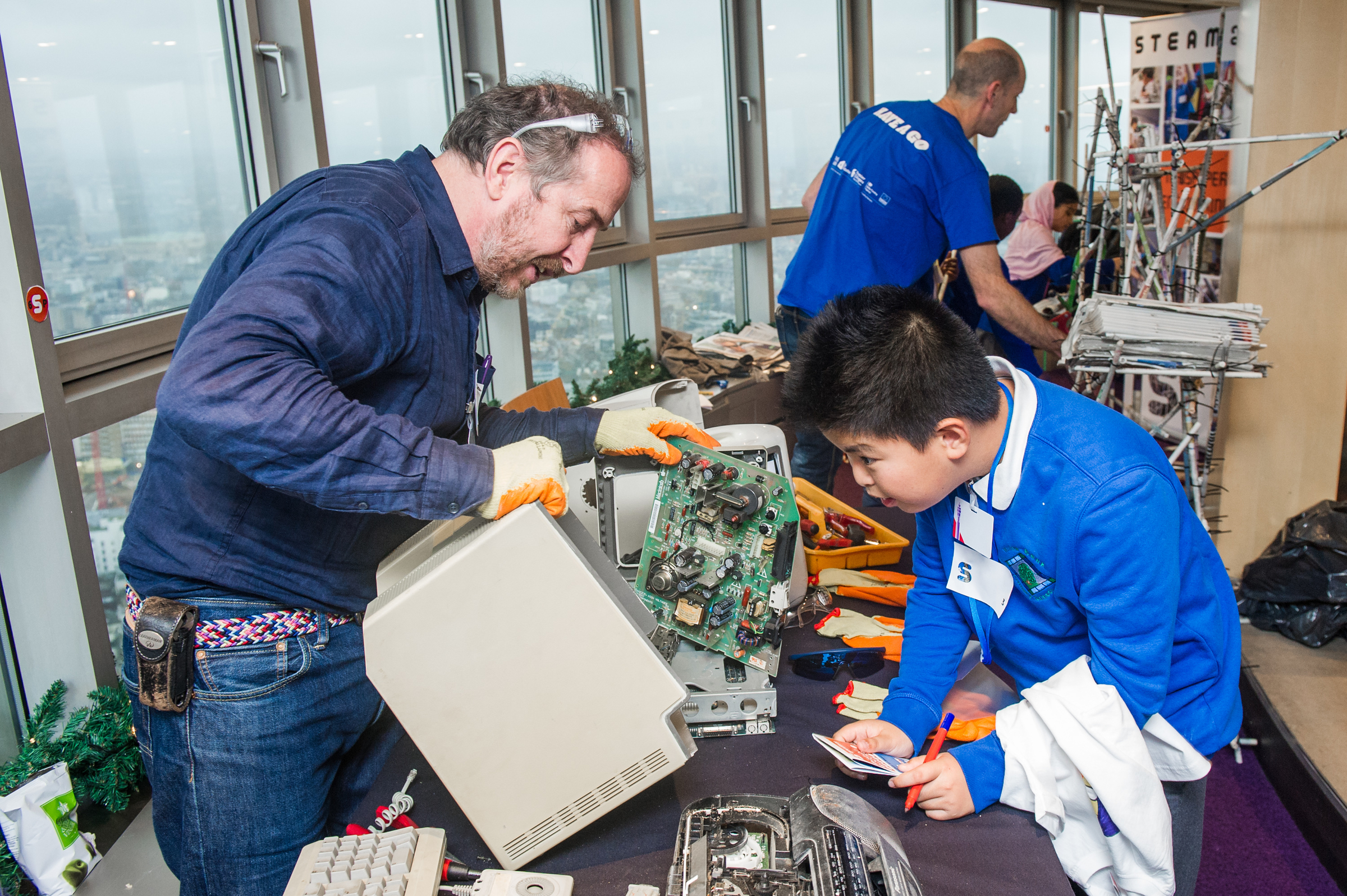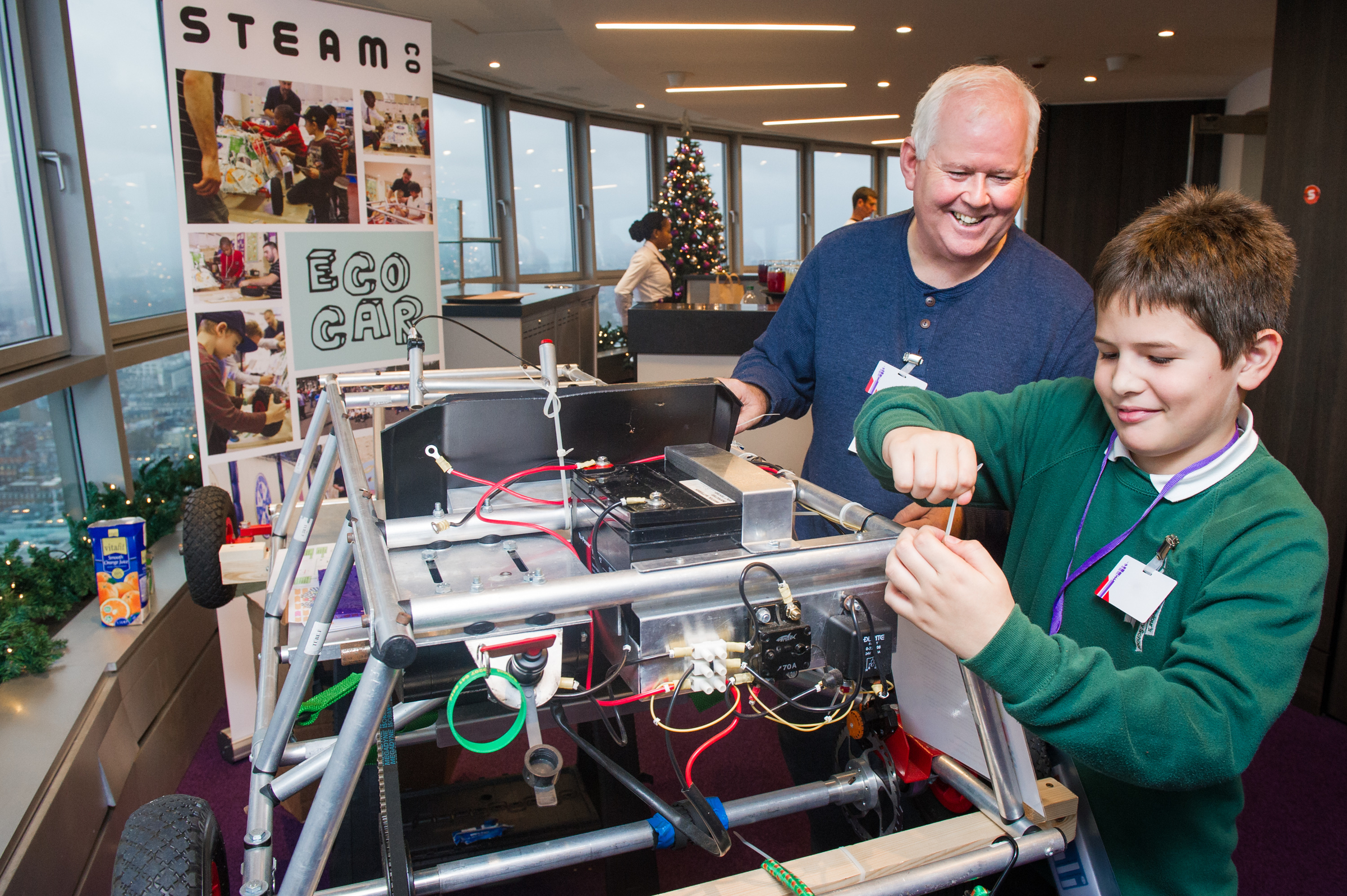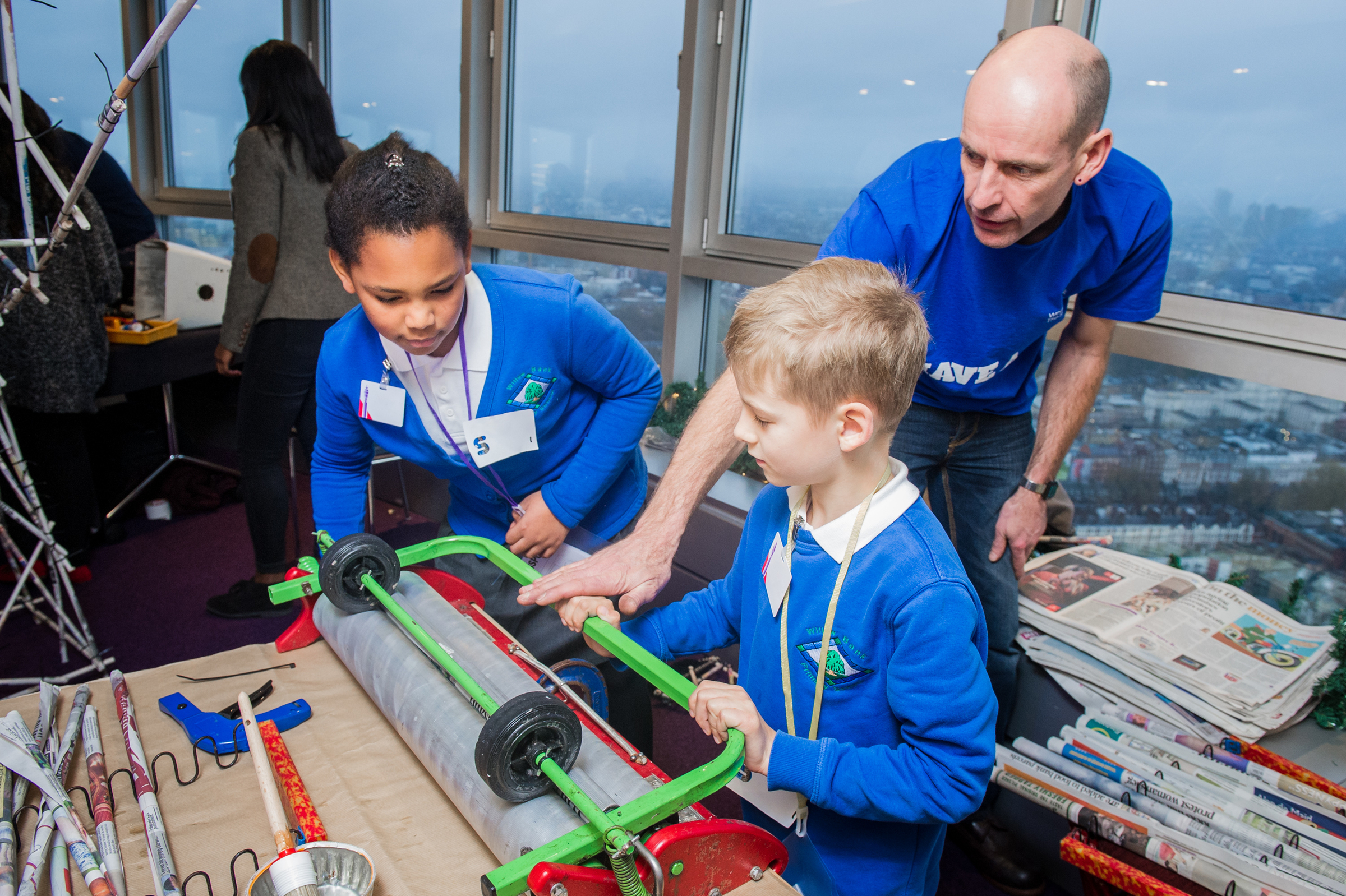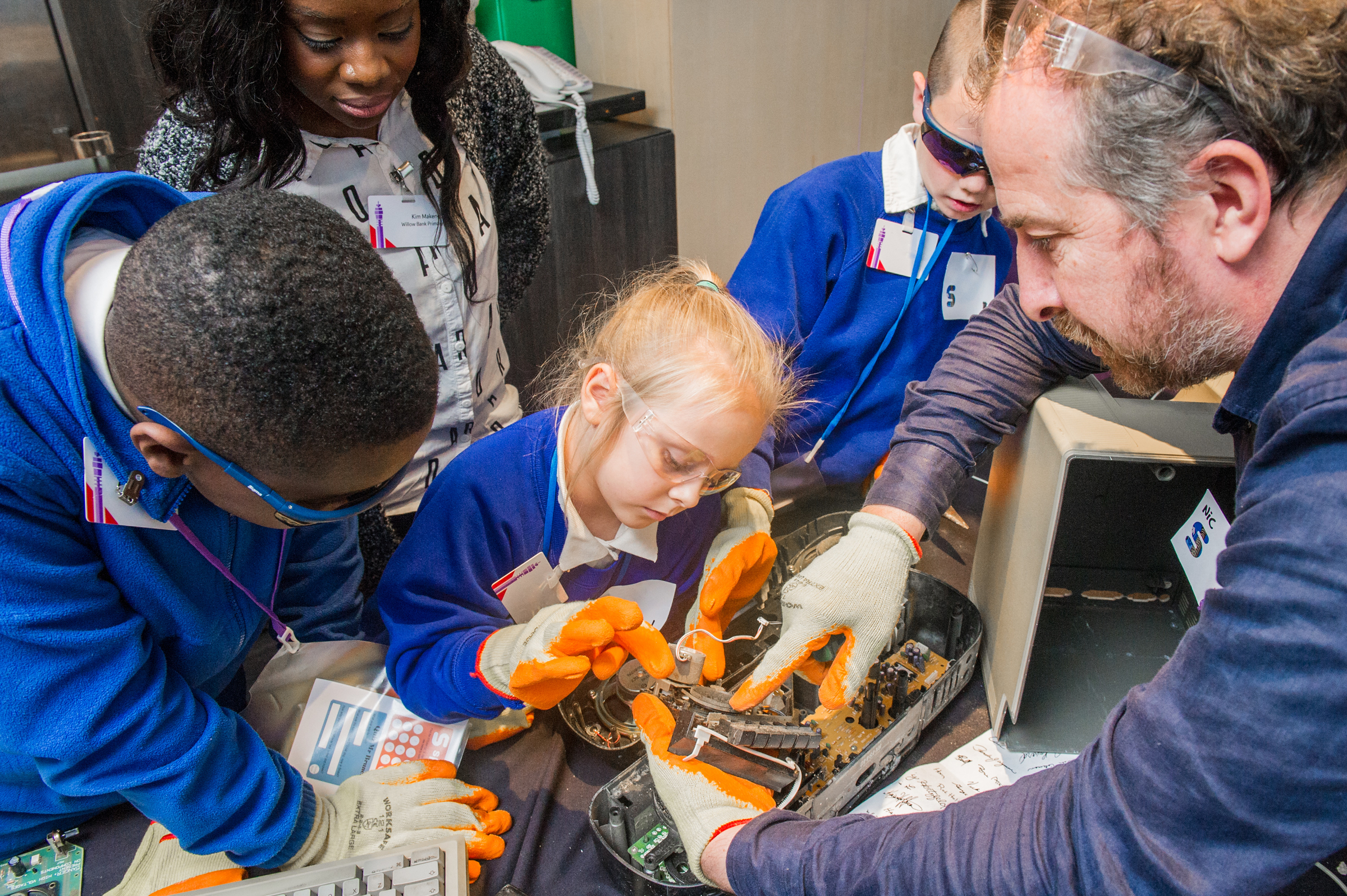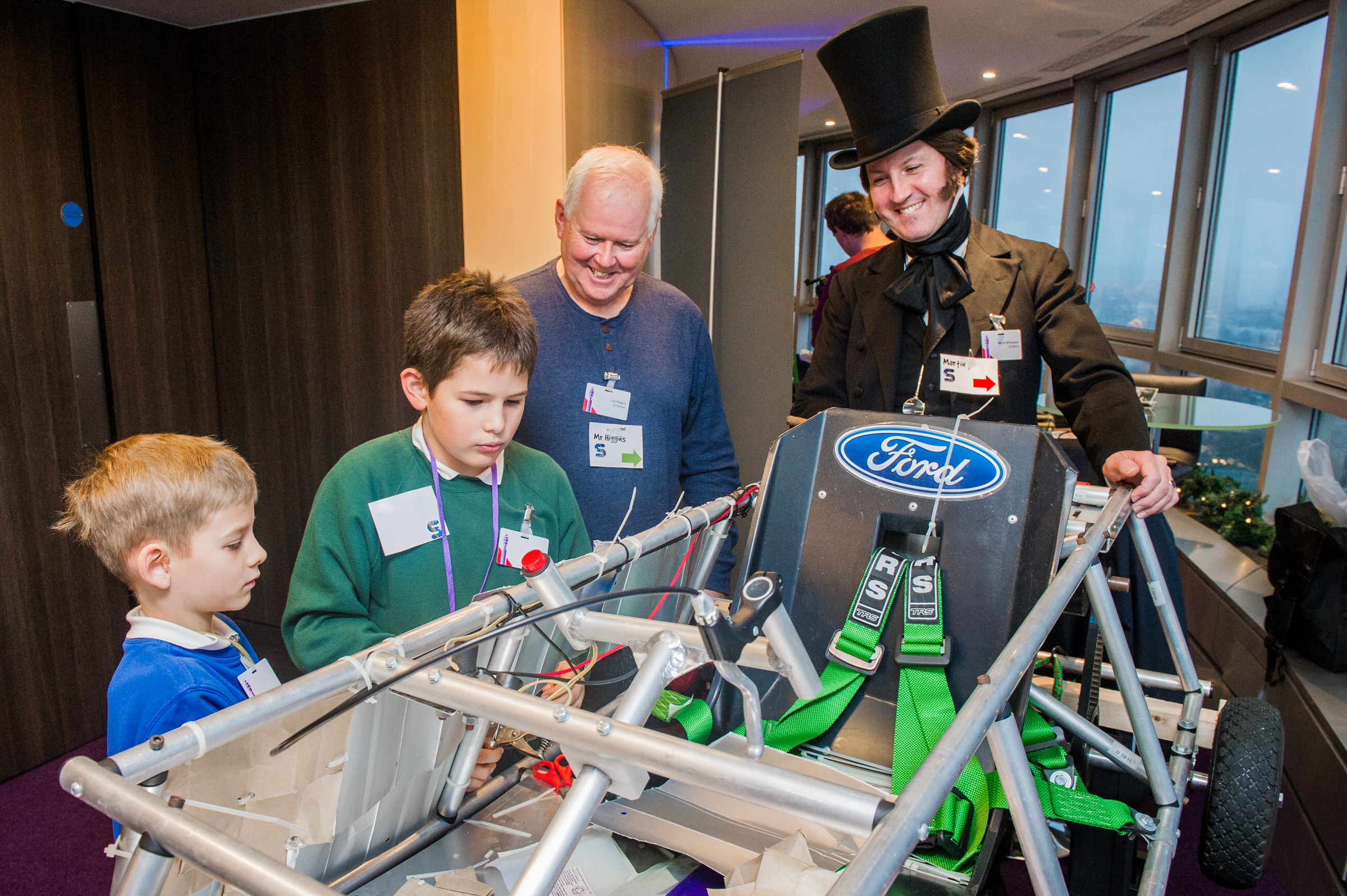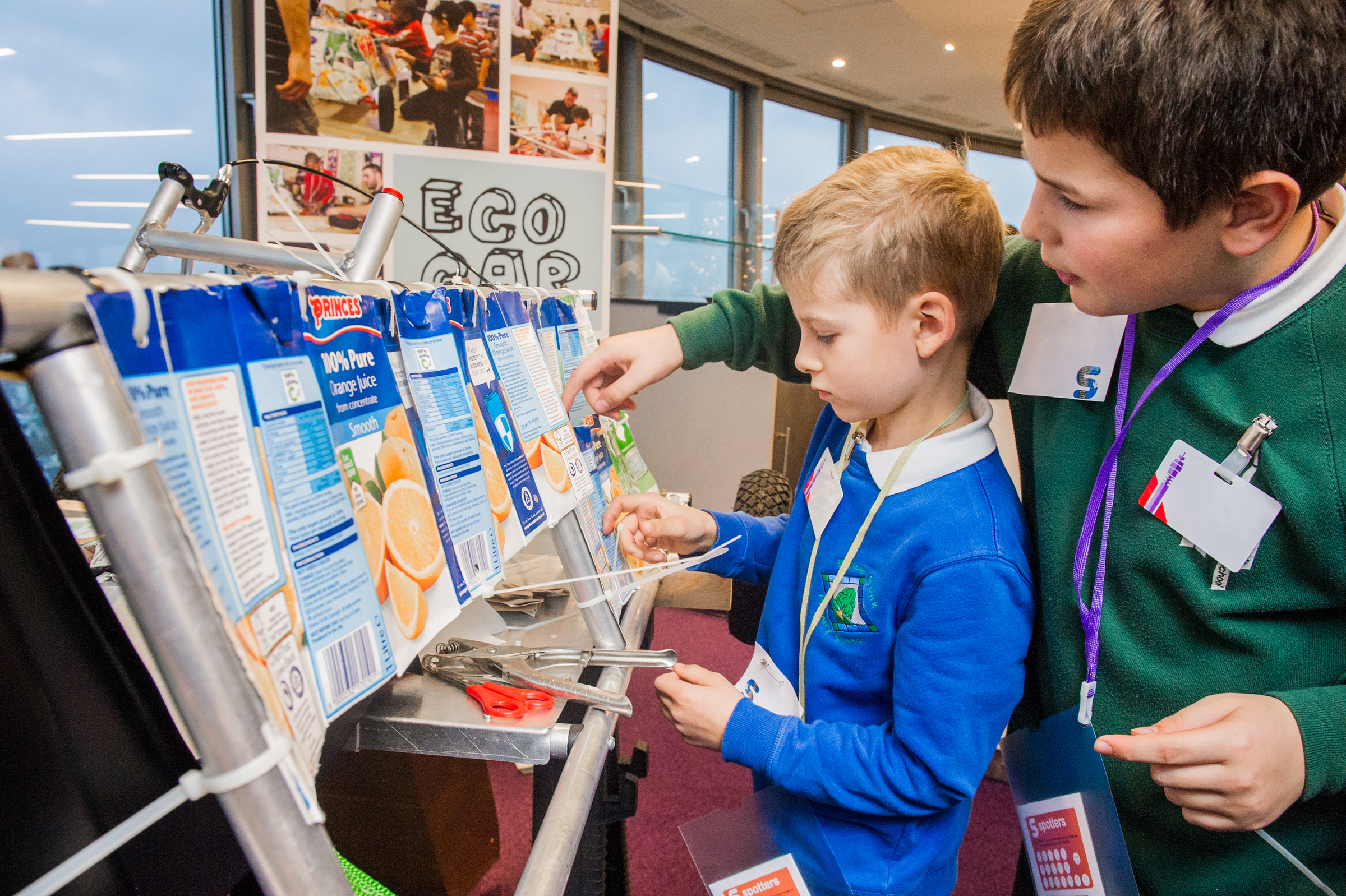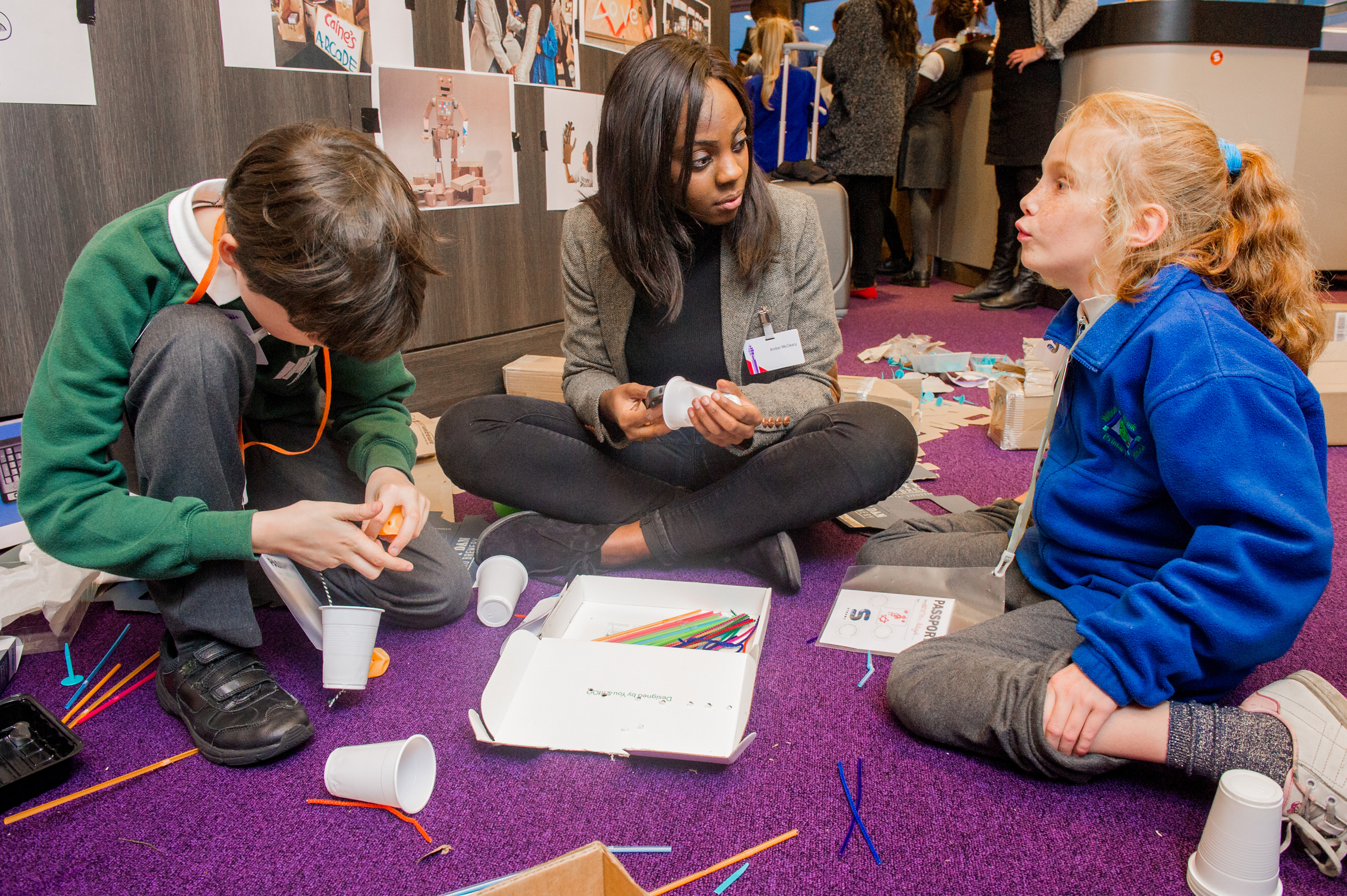STEAM Co. Days are school days like no other and this was a STEAM Co. Day like no other.
At the top of the BT Tower. Believe it!
And we made a connection of our lives through BT in inventor, designer and creative Dominic Wilcox with whom we've gone on to do great things.
Dominic came to Liverpool to speak at our launch event there, signed up as one of our creative ambassadors or Inspirators and invited us to stage a STEAM Co. Day during his Arts Council supported Inventors! project across his home city of Sunderland.
And, at our suggestion, UKTI featured him in a Creativity is GREAT campaign just before he featured on the Late Show in the USA. That's what we call making connections. Thank you BT.
Creativity and pioneering spirit of UK inventors
Yes, we were blown away when BT found us in their favourite search engine and asked us to help them launch and celebrate National Inventors Day to pay tribute to the creativity and pioneering spirit of UK inventors.
By doing this BT, were not only celebrating Britain's creative genius of the past but also inspiring future generations and hopefully leading the way in supporting STEAM Co. as we roll out across the UK this year and call for more sponsors to help us in this way. More info here.
Click image above to play film.
We were delighted that children were able to join us from St Saviour's C of E Primary School in Paddington together with children from WiIlow Bank Primary in Bexley and they all worked really well together.
This very special STEAM Co. Day featured a number of our favourite STEAM skills activities such as Newspaper Imagineering, EcoCar, Cardboard Challenge, Coder Corner, STEAM YT Design Studio and Dessectronics.
We were delighted that Mr Isambard Kingdom Brunel was able to join us and he sent his first ever tweet using BT's free superfast wifi!
BT British invention index
To mark the day, they also published the BT British Invention Index, which revealed British perceptions and attitudes towards invention, and recommends ways to inspire the nation’s future inventive thinkers: what they call ‘Generation I’.
The UK has produced some of the most important inventions in history, including the telephone, the television and the jet engine, and BT are keen to make invention and inventive thinking more mainstream and accessible to make sure our nation’s inventive future matches its past. That’s according to 68 per cent of the adults involved in the UK study.
BT’s wide-ranging study, which involved more than 2,000 adults and 1,000 12 to 16 year-olds, uncovered key challenges that need to be tackled to secure Britain’s inventive future. These include:
- Women are more likely than men to doubt their inventiveness, and girls are more likely than boys to do the same. Over two-thirds of women (69 per cent) say they aren’t inventive, compared with 58 per cent of men. Women are much more likely than men to say they don’t want to be inventive – 29 per cent compared to 18 per cent, respectively.
- Almost half of girls (49 per cent) say they aren’t inventive, compared with 42 per cent of boys. Boys (21 per cent) are more likely than girls (13 per cent) to want to be inventors when they grow up.
- As pupils move through secondary school they are less likely to consider themselves inventive thinkers. Although more than half of 12 year-olds (54 per cent) consider themselves inventive people, under a third (32 per cent) of 16 year-olds think the same – just above the adult average of 31 per cent.
- Only just over half of UK adults (58 per cent) and close to one-third of UK children (32 per cent) can correctly name a British inventor. Alexander Graham Bell was by far the most popular answer, followed by James Dyson, John Logie Baird, James Watt and George Stephenson. (prob no Mr Brunel as he was known as an engineer, but a very creative one - he loved the arts?)
- The top five character traits to have to be a successful inventor are creative (70%), problem-solver (69%), determined (64%), curious (62%) and resourceful (61%). Kids (30 per cent) are more likely than adults (22 per cent) to see inventors as cool.
- Highlighting the hunger amongst adults and kids for more inventiveness, the research found that two in five (40 per cent) adults and 34 per cent of children don’t consider themselves inventive people, but want to be.
- Pointing the way towards a better inventive future, 69 per cent of adults agreed that we need a greater focus on inventing for social good, and 71 per cent felt that it’s more important than ever to work together to invent solutions collectively.
What it means to be inventive
To address these issues and help make invention more mainstream and accessible, the report highlights the need to update what it means to be inventive. Among adults, an inventor is perceived as a genius (65 per cent) scientist or engineer (64 per cent), who is hard-working (41 per cent) and male (37 per cent).
HEre's what a few children said in interviews with BT about invention.
Amongst kids surveyed, the idea of the male (37 per cent) scientist or engineer (58 per cent) as a typical inventor dominates as well – although geekiness (39 per cent) and a bit of craziness (38 per cent) also apply. Almost two-thirds of children (64 per cent) and nearly half of adults (49 per cent) believe that the most important inventions are made by great scientists, engineers or geniuses.
Tim Whitley, Managing Director, Research and Innovation at BT said: “As a company with a long history of innovation, BT wants to celebrate inventors past and present – and help bring invention home. That’s why we’ve launched the very first National Inventors Day, and our new report, to raise awareness of the contribution that great British inventors continue to make to society, and to inspire the next generation of inventive thinkers.”
Addressing the creativity crisis
To help budding inventive pupils to flourish, the report recommends that creativity and inventive thinking should be part of the national school curriculum – a notion supported by over two-thirds (68 per cent) of adults.
It also recommends changing perceptions of STEM (science, technology, engineering and maths) subjects: a fifth of girls (21 per cent) said that making it more socially acceptable for them to do these subjects would encourage them to be more inventive or even become an inventor.
STEAM Co. are concerned that there's a creativity crisis brewing in the UK if not the world so it's truly inspirational to see visionary companies like BT putting this on the global agenda.
BT supports STEAM skills
On top of launching and promoting National Inventors Day, it's worth noting that BT is lead principal sponsor of the Science Museum’s Information Age gallery, which celebrates more than 200 years of innovation in communication and information technologies. BT is committed to supporting schools and the wider community in this important role of inspiring the next generation of inventors.
The company delivers a range of school activities using technology such as Raspberry Pi computers to offer practical ways to encourage creative thinking and invention in the classroom as we have show on STEAM Co. Days.
In Ireland, BT supports the long running BT Young Scientist and Technology exhibition, which helps to nurture the talent of hundreds of future scientists and engineers. The company also supports the Barefoot Computing project, a scheme that develops resources and workshops to help teachers in delivering the new computer science curriculum.
For more news and information on the first National Inventors Day, or BT’s ongoing support and promotion of innovation, visit www.bt.com/ingenious or follow @BTIngenious and #InventorsDay on Twitter.
If YOU want to help do something to help raise the profile of creativity, curiosity and the spirit of invention in UK schools, enquire here.




